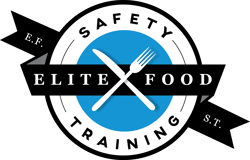Empowering high school students with food safety certification can provide them with valuable skills and opportunities for success in the food industry.
The Importance of Food Safety Certification for High School Students
Food safety certification is crucial for high school students who are interested in pursuing a career in the food industry. It provides them with the knowledge and skills necessary to maintain a safe and hygienic environment when handling food.
By obtaining a food safety certification, high school students learn about proper food handling techniques, the importance of personal hygiene, and how to prevent foodborne illnesses. This knowledge not only ensures the safety of consumers but also protects the reputation of businesses in the food industry.
Moreover, having a food safety certification demonstrates a high level of professionalism and commitment to quality. It sets high school students apart from their peers and shows potential employers that they take food safety seriously. This can greatly enhance their chances of securing employment in the food industry.
Benefits of Offering ServSafe Manager Classes to High School Students
Offering ServSafe Manager Classes to high school students comes with numerous benefits. Firstly, it equips them with the necessary knowledge and skills to handle food safely and prevent foodborne illnesses. By learning about topics such as proper cooking temperatures, cross-contamination, and sanitation, students can develop a strong foundation in food safety.
Secondly, ServSafe Manager Classes provide high school students with a recognized certification that is widely accepted in the food industry. This certification is not only valuable for employment opportunities but also for future educational pursuits in the culinary arts or hospitality management.
Additionally, ServSafe Manager Classes teach students essential management skills, such as how to effectively train and supervise food handlers. These skills are not only applicable in the food industry but also transferable to other industries that require strong leadership and organizational abilities.
Lastly, offering ServSafe Manager Classes to high school students instills a sense of responsibility and professionalism. It teaches them the importance of following regulations and best practices in the food industry, which can have a positive impact on their future careers.
How Food Safety Certification Can Enhance High School Students' Career Prospects
Food safety certification can significantly enhance high school students' career prospects in the food industry. With a certification, students become more marketable to potential employers as they possess the necessary skills and knowledge to ensure food safety.
Having a food safety certification demonstrates to employers that high school students are committed to maintaining high standards of food safety and hygiene. It gives them a competitive edge over other candidates who may not have the same level of certification.
Furthermore, food safety certification opens up a wide range of job opportunities for high school students. They can pursue careers as food service managers, chefs, restaurant owners, or even food safety inspectors. The certification serves as proof of their competence and can lead to higher-paying positions and increased job stability.
In addition to career opportunities, food safety certification can also provide high school students with a strong foundation for further education in the culinary arts or food science. It can serve as a stepping stone towards pursuing advanced degrees or certifications in specialized areas of the food industry.
Implementing Food Safety Certification Programs in High Schools
Implementing food safety certification programs in high schools is a proactive approach to prepare students for the food industry. By introducing these programs, schools can equip students with valuable skills and knowledge that are essential for a successful career in food service.
To implement food safety certification programs, schools can collaborate with industry professionals, such as certified trainers or local health departments. These partnerships can provide students with access to quality training materials, hands-on learning experiences, and opportunities for internships or apprenticeships.
Schools can also integrate food safety certification programs into existing culinary arts or vocational programs. By incorporating certification training into the curriculum, students can acquire both theoretical knowledge and practical skills, ensuring a well-rounded education in food safety.
Additionally, schools can consider offering scholarships or financial assistance to students who wish to pursue food safety certification. This can remove financial barriers and make the certification more accessible to a wider range of students, fostering inclusivity and equal opportunities.
Overall, implementing food safety certification programs in high schools demonstrates a commitment to students' success and prepares them for the demands of the food industry.
Success Stories of High School Students with Food Safety Certification
There have been numerous success stories of high school students who have obtained food safety certification and gone on to achieve great things in the food industry.
For example, Sarah, a high school student who obtained her food safety certification, secured a part-time job at a local restaurant while pursuing her college education. Her certification not only gave her an advantage over other candidates but also allowed her to quickly adapt to the restaurant's food safety practices.
Another success story is Mark, who started his own catering business immediately after graduating from high school. His food safety certification gave him the confidence to start his own venture, and it reassured his clients that their food would be prepared and served safely.
These success stories highlight how food safety certification can open doors and create opportunities for high school students, propelling them towards a successful and fulfilling career in the food industry.

.png)
.png)
-2.png)
-2.png)
.jpg)
